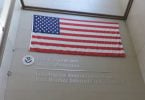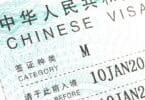Kevin Mitchell, the Chairman of the Business Travel Coalition published the following letter to the members of US Congress, regarding the ongoing Emirates Airline, Etihad Airways, Qatar Airways (the Gulf Carriers) and Delta Air Lines, American Airlines and United Airlines (the Big Three) row today:
June 14, 2017
Dear Members of Congress,
Fearful of competition from guest-friendly Emirates Airline, Etihad Airways and Qatar Airways (the Gulf Carriers), Delta Air Lines, American Airlines and United Airlines (the Big Three) have vilified state ownership of airlines. They complain it is inherently unfair and that the 120 Open Skies agreements the US has entered into prohibit state aid.
However, the Big Three’s complaint is one of selective indignation versus a principled and consistently applied position. It applies only to state-owned competitors that they consider to be a competitive threat, i.e. those with the best customer service and value proposition for travelers.
The CEO of Delta Air Lines recently told the Atlanta Journal-Constitution that the carrier’s top priority in Washington is state-owned enterprises, and to ensure that the Trump Administration protects the airline and its workers from purportedly unfair competitive advantages that they have.
Delta Air Lines certainly has first-hand experience with state-owned airlines given its considerable commercial experience investing in and partnering with them. In 2015 it paid $450 million for a 3.55 percent stake in state-owned China Eastern, which is regarded to be China’s most subsidized carrier. Seventy-five (75) percent of the airlines in the carrier’s SkyTeam alliance are state-owned.
If state ownership is inherently unfair, and state aid is prohibited by Open Skies agreements as Delta Air Lines claims in its political campaign against the Gulf Carriers, then how can the airline reconcile this obvious clash between its political advocacy and its commercial relationships?
It isn’t just Delta Air Lines. Its oligopoly partners American Airlines and United Airlines are dogged by the same blaring inconsistency. They are jointly urging the Trump Administration to abandon Open Skies and to replace it with a managed competition scheme to solely promote their commercial interests.
In March, American Airlines announced it paid $200 million for a 2.76 percent equity stake in China Southern, which is state-owned and subsidized. Perhaps the explanation is the same laughable one the CEO of American gave to the South China Morning Post in a June 23, 2015 interview when asked to reconcile American Airlines’ campaign against the state-owned Gulf Carriers with its accommodating position regarding state-owned Chinese airlines – the CEO claimed he “doesn’t know” if Chinese state-owned carriers receive government subsidy. Seriously?!
In other words, American Airlines is willing to look the other way when it suits its commercial interests to do so and, in the “special” cases of oneworld alliance partner Qatar and code-share partner Etihad Airways, American Airlines is unabashedly comfortable simultaneously having it both ways.
At the same time American Airlines rails against Qatar Airways and Etihad Airways, each day it puts money in the bank from the hundreds of thousands of code-share passengers they feed onto American Airlines’ flights each year. After all, as American Airlines has put it, both carriers play an important role filling gaps in their network map. As to American Airlines’ oneworld alliance, fifty-three (53) percent of the members are state-owned airlines.
United Airlines suffers from the same “listen to what we say but don’t look at what we do” problem. Fifty (50) percent of its Star Alliance partners are state-owned carriers. Two of them, Air India and South African Airways, constantly approach their governments with a begging bowl seeking bailouts. Yet, not a peep of concern, much less outrage, from United Airlines.
For that matter, the Big Three claim the Gulf Carriers are responsible for their failure to identify and participate in the growing US-India market. But, given the focus on India in their campaign against the Gulf Carriers, have you once heard the Big Three complain that government bailouts of Air India violate the US-India Open Skies agreement?
So what makes the Gulf Carriers different? The Big Three claim it is the alleged size of unproven state aid claims. However, that’s a hollow political sound bite. You don’t have to drill down far to identify the real explanation. Unlike other state-owned carriers, they believe the Gulf Carriers pose a competitive threat – an attractive alternative for consumers – so, selectively the Big Three argue a special set of rules should be crafted and applied only to them.
At a time that the US should be embarrassed by the high-profile customer service failures of the Big Three, the Gulf Carriers top every global passenger survey. TripAdvisor and Skytrax both recently named Emirates Airline the best airline in the world. Skytrax ranked Qatar Airways and Etihad Airways second and sixth, respectively. How did the Big Three fair in the same Skytrax survey? Delta Air Lines was the “best” in 35th place, with United Airlines and American Airlines lagging even further at 68thand 77th respectively.
The Big Three’s customer service meltdowns caused policymakers and the public to focus on the fact that a massive wave of industry consolidation has strangled competition leaving eighty (80) percent of domestic capacity in the vice-like grip of the Big Three plus Southwest Airlines. The state of the US-Europe market is just as troubling but does not get the same attention. Over eighty (80) percent of those seats in the US-Europe market are divvied up between Big Three-led joint ventures that are exempt from competition oversight because they have been granted antitrust immunity.
It is easy to see why American Airline’s CEO has publicly stated that despite all the bluff and bluster about Gulf Carrier subsidies his desired outcome in their anti-Gulf Carrier political campaign is to gut the US-UAE and US-Qatar Open Skies agreements by eliminating Fifth Freedom(*) rights permitting Gulf Carriers to add consumer choice in the US-Europe market. With American Airlines’ dismal showing in the Skytrax survey, it is easy to see why it does not relish the thought of competing with a customer service leader like Emirates Airlines.
The Big Three are making record-breaking profits. Rather than complaining and pleading with the Administration for a selective anti-competitive set of rules that would apply solely to a handful of competitors they fear the most, the Big Three should invest those profits in upping their game to compete more effectively.
Clearly, the answer is not to abandon 25 years of steadfast Open Skies policy that has significantly benefitted the broad array of US aviation stakeholders including commercial and cargo airlines, consumers, communities, airports and aerospace manufacturers. Congress should implore the Trump Administration to finally put this fake issue behind it.
Sincerely,
Kevin Mitchell
Chairman
Business Travel Coalition
COPIES
President Donald Trump
Vice President Mike Pence
Secretary of Commerce Wilbur Ross
Secretary of Transportation Elaine Chao
Secretary of State Rex Tillerson
White House Chief Strategist Stephen Bannon Senior Advisor to the President Jared Kushner White House Press Secretary Sean Spicer White House Chief of Staff Reince Priebus Senior White House Adviser Stephen Miller Counselor to the President Kellyanne Conway Special Assistant to the President D.J. Gribbin
(*) A Fifth Freedom allows a carrier to transport revenue traffic from its home country to a second country and onto a third country.























